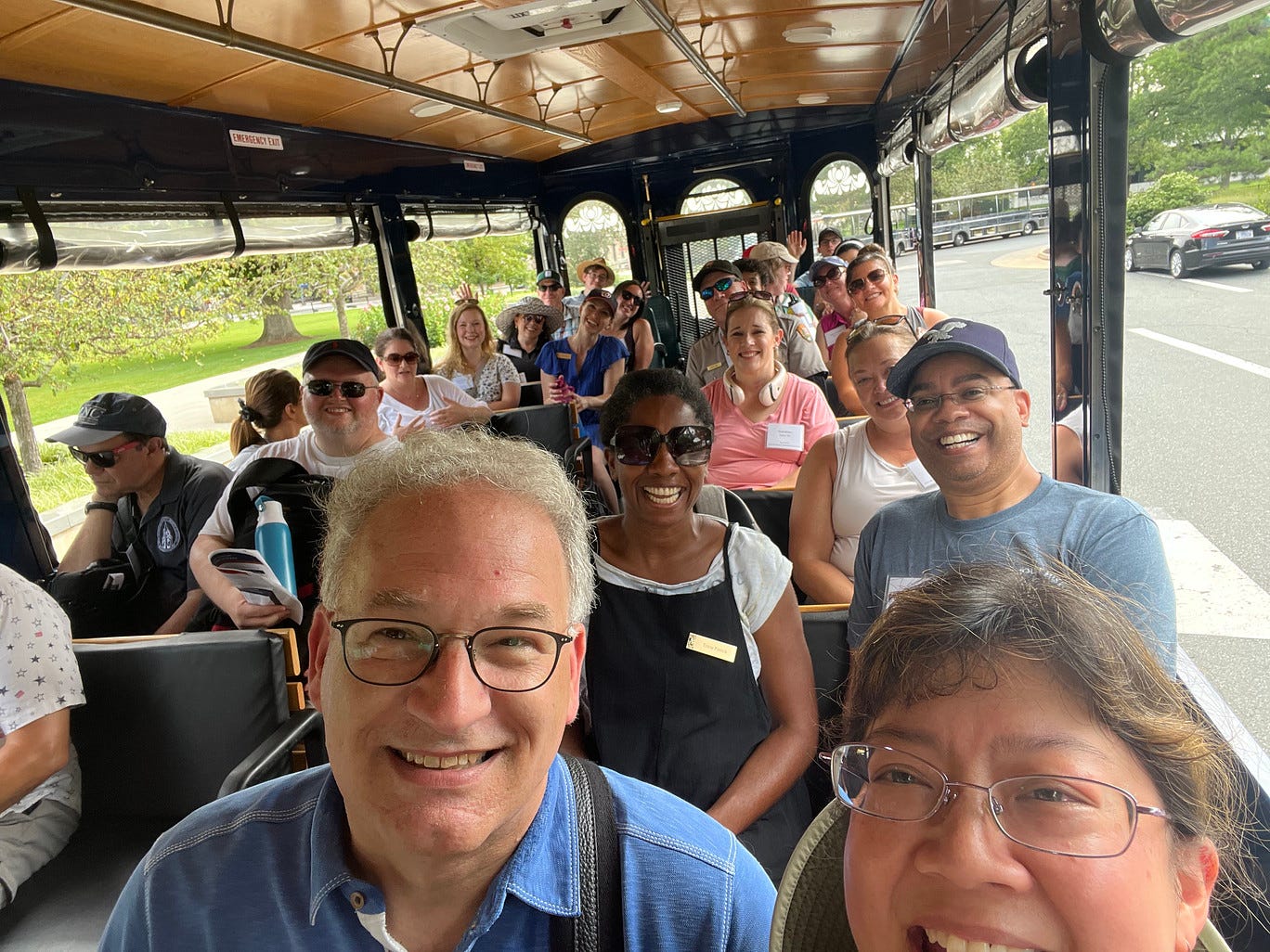I am feeling so many things having come to the end of a week of working with some of the most talented and ambitious teachers from around the country at Ford’s Theatre in Washington, D.C. These twenty participants took time out of their much deserved summer break to learn about the history and legacy of the Civil War and Reconstruction.
While it was impossible to avoid the ongoing public debate about history education and the news coming out of places like Florida and other states, which have chosen to censor and distort key subjects in American history such as race and slavery, these teachers are pushing forward. They understand the dangers, but they also understand their obligations to their students.
It’s impossible not to walk away from such a week and not acknowledge that the political debate and demonization of our history teachers has nothing to do with what is going on in the classroom or, more importantly, with who they are as people.
We spent the week exploring the very topics that non-specialists and elected leaders are now using to advance their own agendas rather than working to empower their local educators.
At no point did I or any of the other historians who spoke to this group this week suggest that white students should be made to feel guilty about the past or that American history is nothing more than our worst moments as a nation. We impressed upon them the importance of complicating the narrative and finding stories that their students can relate to and that represent the full spectrum of the human experience.
For example, historian Kate Masur encouraged us to extend our narrative of Reconstruction to 1900, not simply to dwell on, for example, the Supreme Court’s ruling in Plessy or the overthrow of a biracial government in Wilmington, NC or even the rewriting of state constitutions that barred the vast majority of African Americans from voting, but to acknowledge the survival of Black institutions like schools and churches.
Historians Hilary Green and Holly Pinheiro reminded teachers of the importance of themes such as hope and love in the story of African Americans alongside the difficult struggle to secure the rights of full citizenship.
Rather than restricting our teachers and creating an atmosphere of fear and uncertainty in their lives, we should be uplifting our teachers by providing them with the resources that they need to engage students around the tough questions. Adults may not be able to handle some of these difficult subjects, but our students are eager to do so.
Everyone, regardless of race, class, and gender, should feel a little uncomfortable about the past when you are fully immersed in it. It’s in those moments that we learn something about ourselves and our place in the world.
I tried to remind the teachers that it is fear—specifically the fear of free thought and the free exchange of ideas—that is animating the politicians and organizations that are committed to turning back the clock on scholarship and history education generally. Their legislative agenda and problematic standards are an admission that they have surrendered the field. It’s an admission that they have already lost.
How do I know they’ve lost? Because every teacher that I had the honor of working with over the past five days will be in front of students once again in just a few weeks.





proud of you son
Your week sounds amazing, Kevin. Thanks for sharing the update with us. I remain hopeful, too. Teachers are the absolute best, aren't they? In the spirit of full transparency, my son is a DC public school teacher. #proudmomalert